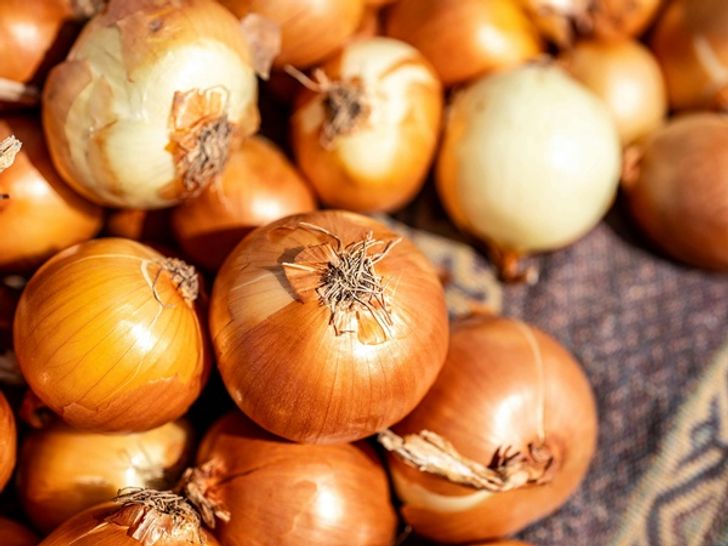Better know that 6 types of vegetables and fruits will spoil faster if stored in the refrigerator, but many people often make this mistake.
Not everything is suitable to store in the refrigerator. Here are 6 types of vegetables and fruits that spoil faster when stored in the refrigerator. Many people make this mistake.

Having a refrigerator allows us to store food for longer periods of time. Saving us from having to go out and buy fresh produce every day and making it easier to prepare fresh meals. However, not all vegetables and fruits should be stored in the refrigerator. Some, when stored at temperatures that are too low, can change their quality, lose their taste, or sometimes even spoil faster.
- wish
Potatoes are a familiar ingredient in many households’ kitchens. If potatoes are stored in the refrigerator, the starch in the potatoes will change to sugar. Making the flavor sweeter and the texture changing. Which will reduce the quality of the ทางเข้า UFABET สำหรับสมาชิกใหม่ สมัครวันนี้ รับโบนัสฟรี food.
More importantly, the humidity in the refrigerator can cause potatoes to start sprouting, or turning green, at which point they produce solanine—a toxin that is harmful to your health.
How to store in the refrigerator. If a cool, airy place is not available, potatoes can be stored in the refrigerator at 7-10 degrees Celsius, wrapped in a paper bag to reduce moisture. They should be used within 1-2 weeks to prevent germination. However, it is best to store them in a dry, airy place, protected from light. Such as in a wooden box or basket lined with newspaper.
2.tomato
Like potatoes, tomatoes are not suitable for refrigeration. If stored in the refrigerator, tomatoes will gradually lose water. Causing the flesh to be less juicy and losing its fresh flavor.
In addition, low temperatures can damage the cell structure. Causing the skin of the tomato to wrinkle and become soft, not as tasty as before. The best way is to store tomatoes at room temperature, protected from direct sunlight. If the tomatoes are overripe, they should be used as soon as possible to maintain the best flavor.
How to store in the refrigerator: If you need to store it for a long time, such as overripe tomatoes. Store them in the vegetable compartment at a temperature of about 10 degrees Celsius, wrapping each tomato in newspaper or a paper bag to reduce water loss and should be used within 3-5 days. However, they should be kept outside, away from direct sunlight, and used. As soon as possible when the tomatoes are ripe.
3. Onion
Onions should not be stored in the refrigerator. Because the high humidity will cause the onions to rot and grow mold easily. In addition, onions have a rather strong smell. If stored in the refrigerator with other types of food, the smell of onions may stick to other foods. Which will ruin the taste of that food.
The best way to store onions is in a dry, airy place, avoiding direct sunlight.
How to store in the refrigerator: If cut or if a dry, airy place is not available. Wrap the onions in a zip-lock bag to keep out odors and store in the refrigerator. Use within 1 to 2 weeks. However, it is best to store them outside in a basket or mesh bag, away from sunlight.
- garlic
Garlic is also not suitable for refrigeration. If stored in the refrigerator, garlic may start to sprout or grow mold, which will reduce its flavor and quality. Instead of refrigerating, store garlic in a mesh or paper bag and place it in a dry. Airy place to preserve its aroma and flavor.
How to store in the refrigerator: If you need to store it for a long time. Wrap the garlic in a paper bag and store it in the refrigerator at about 4 degrees Celsius. Use it within 2-3 weeks to prevent germination. However, it is best to hang it in a mesh bag or store it in an airy basket in the room.
5. pumpkin
Pumpkin is another vegetable that should not be stored in the refrigerator because low temperatures can cause pumpkin to spoil quickly and lose its nutritional value. If it is not cut, it can be stored in a cool, dry place. However, if it is cut, wrap the cut part in plastic wrap to prevent oxidation.
How to store in the refrigerator: If cut, wrap the cut portion in plastic wrap and refrigerate. Use within 5-7 days. Uncut pumpkin is best stored outside, away from moisture or extreme heat.
6. Eggplant
Eggplant is a vegetable that is sensitive to low temperatures. When stored in the refrigerator, eggplant will become soft, darken in color, and lose its freshness. Therefore, it is best to store eggplant at room temperature and buy only enough for each day to avoid prolonged storage and deterioration of quality.
How to store in the refrigerator: If you need to store them, wrap the eggplant in newspaper and store in the vegetable drawer at 10°C. Use within 3-5 days to prevent the eggplant from softening. It is best to buy just enough to use and store outside for immediate use.